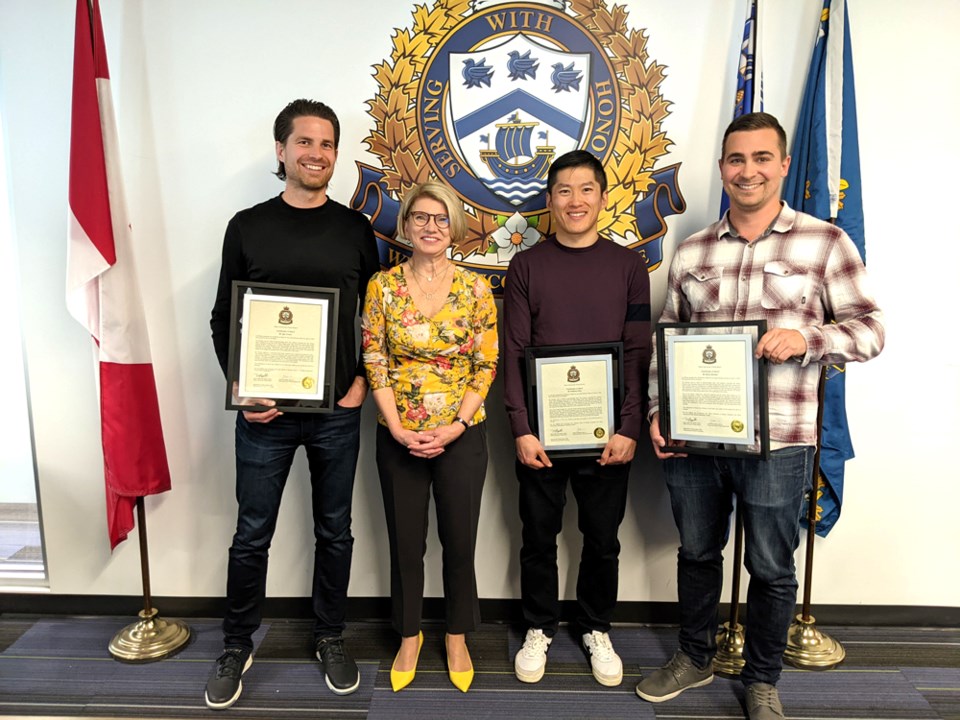Barry Hartman and Igor Trninic could tell something was up by the erratic movements of the driver ahead of them.
The Tsawwassen friends were just getting onto the Lions Gate Bridge and headed for Whistler on the morning of April 3 when they found themselves thrust into a life-or-death situation.
At midspan, the driver ahead of them hit the concrete barrier and stopped. The friends called 911 and got out to offer assistance to the man at the wheel.
“He just kind of gave a blank stare. He didn't say anything,” Hartman said. “He walked towards the guardrail and put his hands on it, and that's when I knew something was wrong.”
Anthony Chow, who had been two car lengths ahead also stopped. Hartman threw down his phone and they raced to the man.
“I ended up bear-hugging the guy and pulling him back over the railing because he was trying to jump. He wasn't just thinking about it. It was a struggle to get [him] back over,” he said.
Hartman and the others told the man reassuring things – that he was loved, that everything was going to be OK, and that help was on the way.
“He looked troubled,” Hartman said. “He wasn’t in his right head space at that time.”
When things appeared to be settling down, they loosened their grip and allowed him to sit up. The man immediately bolted for the railing and again, the impromptu life-savers had to wrestle him back over and down to the bridge deck.
“We just kind of held him there,” he said.
The police arrived and took the man to the hospital. The victims’ services unit followed up with the volunteer rescuers to make sure they hadn’t been left with trauma from the incident.
Certificates of merit
Weeks later, they received a call from the West Vancouver police board, inviting them to a ceremony to receive the certificate of merit, the highest award handed out by the body. The certificates aren’t handed out every day. The last time one was award was in 2015.
It was nice to be recognized, Hartman said. He likes to think anyone would have done the same thing, although he worries what would have happened had there not been someone willing or able to rush in.
“It was a pretty scary situation,” he said. “If there was even a split second of hesitation, the guy wouldn’t be here.”
As a rule, information about a patient having a mental health crisis is never released back to the people who helped them, Hartman said, so he doesn’t know the status of the man today.
“To give myself some peace of mind, I just tell myself we were there to help. We did what we did and it gives him a new opportunity.”
The pandemic has taken a toll on everyone’s mental health, Hartman acknowledged, which means there would be thousands of others out there also suffering and in need of some help.
Help is available
If you or someone you know is in crisis, help is available 24 hours per day by calling 1-800-SUICIDE (1-800-784-2433) or through BC Health Link at 310-6789.




